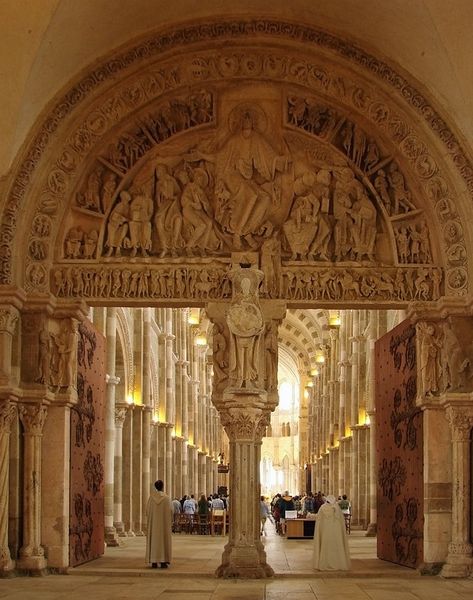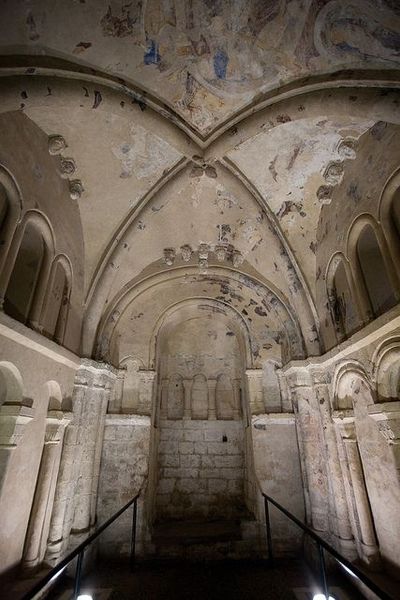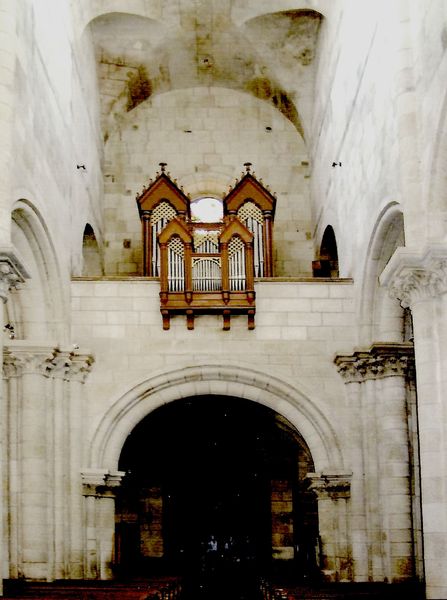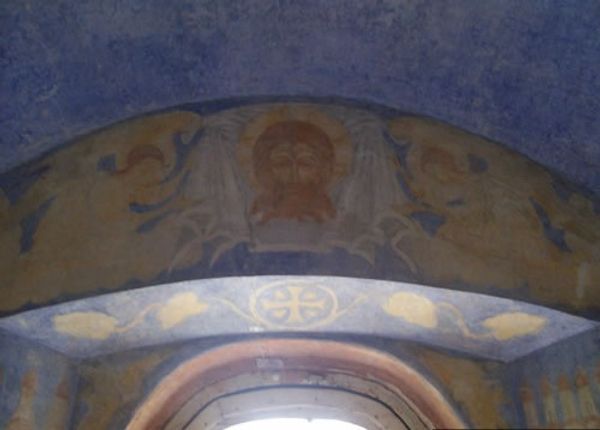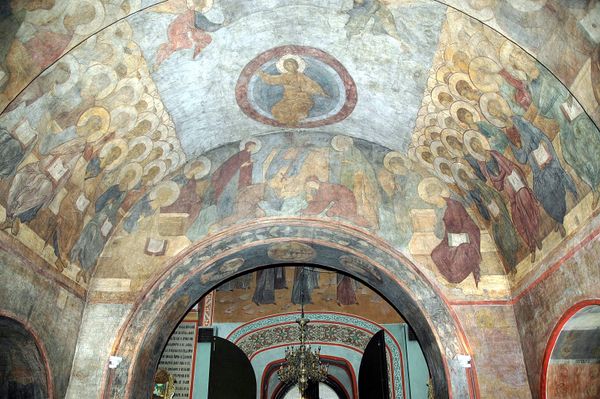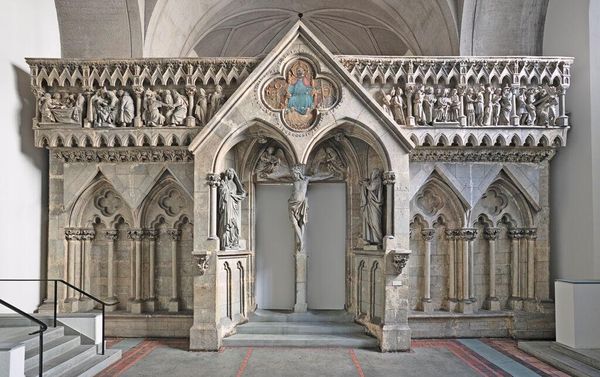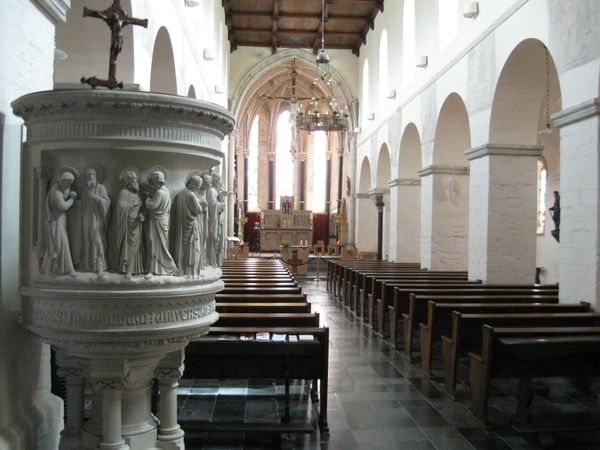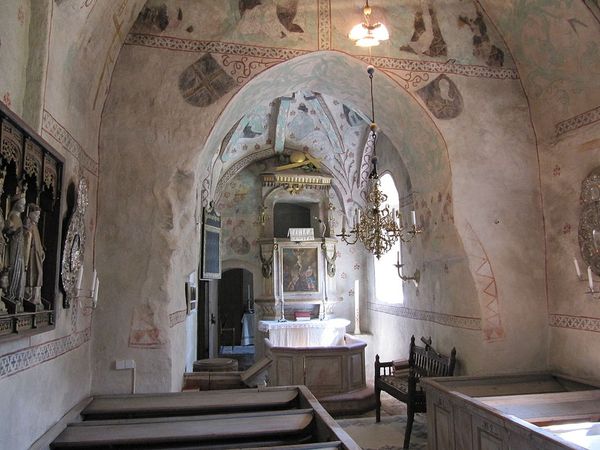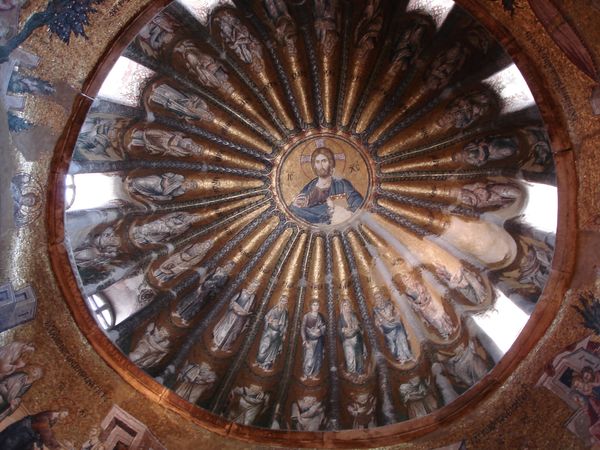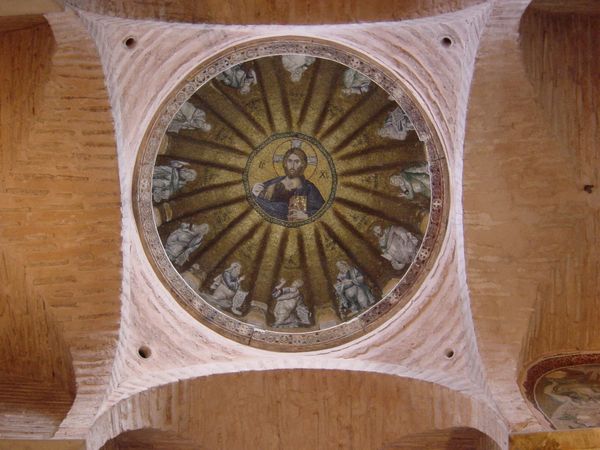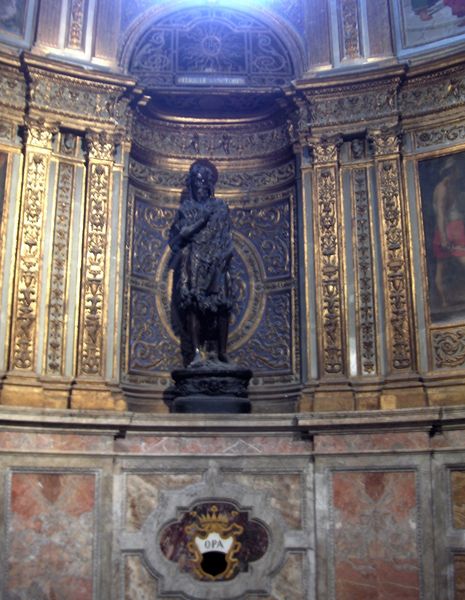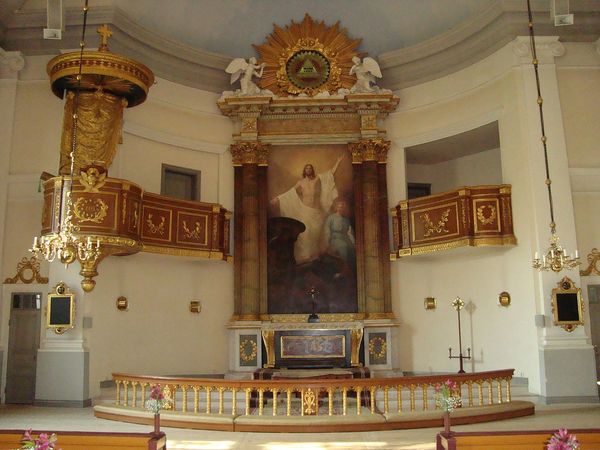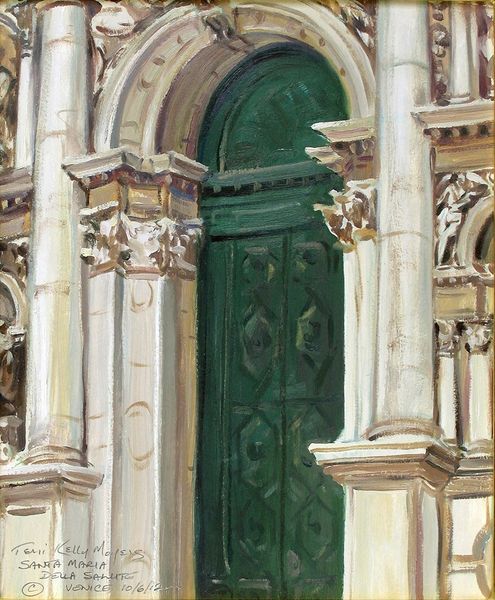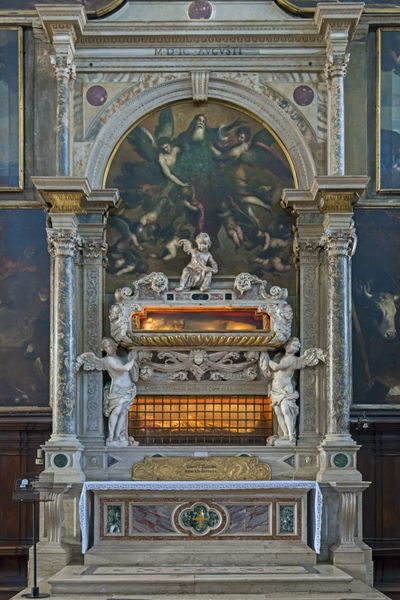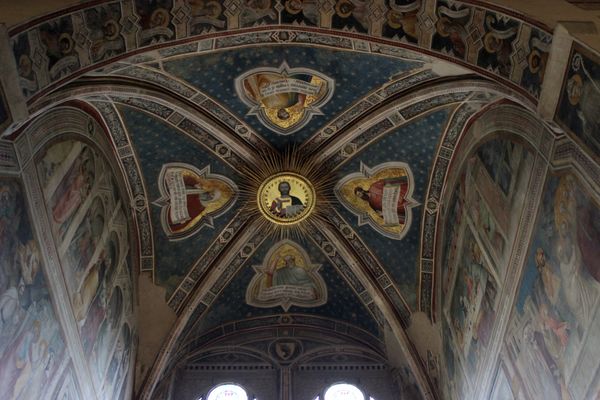
carving, sculpture, architecture
#
medieval
#
carving
#
sculpture
#
historic architecture
#
architecture influence
#
traditional architecture
#
romanesque
#
sculpture
#
arch
#
architectural
#
architecture
#
historical building
#
statue
#
building
Copyright: Public domain
This crypt was built as part of the Basilica of Saint Sernin in France during the Romanesque period. This architectural space embodies key values of the medieval church, and its cultural and institutional context. The basilica, and especially its crypt, served as a major pilgrimage site. Its design reflects the desire to accommodate large crowds of pilgrims coming to venerate relics. The heavy stone construction, rounded arches, and barrel vaults are typical of Romanesque architecture and served both structural and symbolic purposes, conveying a sense of solidity and permanence which reinforced the authority of the church. Relics displayed in the crypt affirmed the church's central role in mediating the divine and provided tangible links to the lives of saints. The crypt's architecture and the display of relics speak to the social structures of the time, reinforcing religious belief and the power of the Church. Historical documents and archaeological findings provide invaluable insights. Architectural plans and church records can shed light on the building's construction and the social dynamics of its use.
Comments
No comments
Be the first to comment and join the conversation on the ultimate creative platform.
